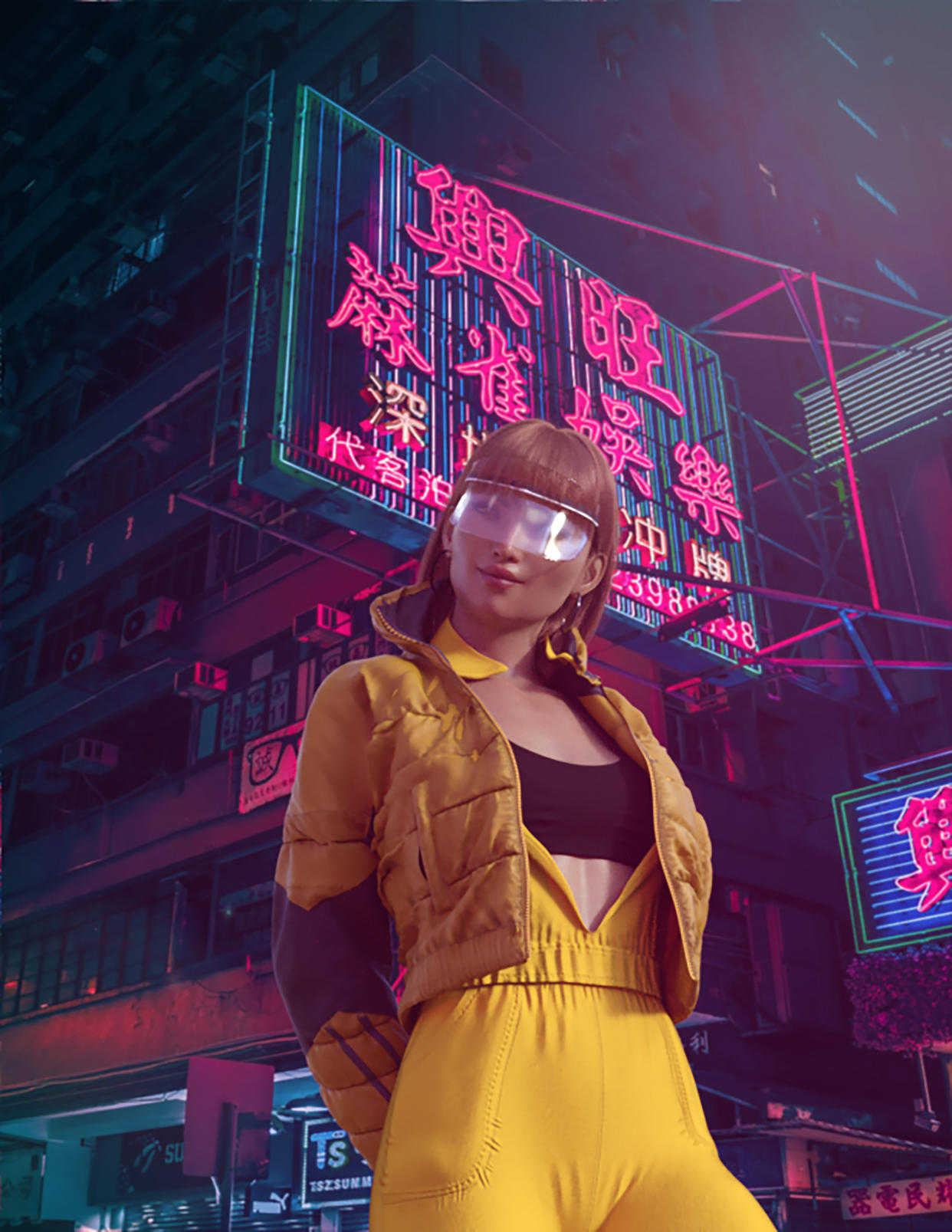Meet Ava: Singapore now has its very own Artificial Influencer

Over the last decade or so, the “influencer” has become ubiquitous. There are fashion and beauty influencers, there are sports and fitness influencers, there are foodie influencers, and even pet influencers.
Individuals who are generally ‘ordinary people’, have for some reason or other established followings of hundreds and thousands of people on various social media platforms. Of course, the most obvious example of the influencer phenomenon is the Kardashian family - famous for, well, for being famous really.
Influencers are basically tools for marketers. Either marketing themselves and their own products, or being paid to market other brands. A lucrative contract can bring in thousands of dollars, and the end goal for all influencers is to survive - and thrive - by creating content for social media platforms like Instagram, YouTube and now TikTok.
But even the most established of influencers suffer ups and downs, particularly in the recent upheavals of COVID-19 and now, the continuing protests about racism around the world. A number of celebrities - who are basically influencers too - and social media stars have been caught up in various dramas surrounding inappropriate posts - including losing some very lucrative contracts.
Twitter account Influencers in the Wild has outed a number of so-called influencers using the recent protests to look like they’re supporting the Black Lives Matter protests; and the already scandal-ridden Olivia Jade - who was part of the celebrity payment for college entry scam - received a huge amount of backlash after her posts condemning white privilege were seen as hypocritical considering it was her whiteness that made her famous.
All of which makes many brands - and individuals - wary of supporting influencers in general right now. The vagaries of human actions, however, are not something that is a problem if you choose someone like Ava.

Who is Ava, and what does she do?
Ava Gram is a Singaporean fashion avatar, a forever-22, virtual influencer, who works on social media platforms to “champion social and political beliefs”, her creator Reyme Husaini shares with Yahoo Lifestyle SEA.
“As a fashion avatar, she aims to use her influence to talk about issues that are currently happening in Singapore such as the COVID-19 pandemic, racial inequality and gay rights,” says Husaini, BA(Hons) Fashion Media and Industries graduand, LASALLE College of the Arts.
According to Husaini, Ava was designed to target individuals aged 21-35, and who are “digitally driven consumers and are responsive to today’s social and political climate”.
When it comes to Artificial Influencers working with brands, Husaini believes that it is a positive move.
“Real influencers and celebrities could make mistakes that might influence the public’s perception of the brand. With a virtual influencer, you don’t risk associating your brand with any negative press,” explains Husaini.
“When you hire a virtual influencer, you have a neutral clear viewpoint to start with, with the certainty that what you see is what you get. The client would have more control over the clarity of the message they’re trying to get across, along with the confidence that the virtual influencer endorses and promotes their viewpoint wholeheartedly in the collaboration.
“The idea of a virtual influencer right now is still very fresh and new. If your brand is trying to reach Gen-Z or a younger audience, a virtual influencer might be something that appeals to your intended demographic.”
Will AI take over the world?
So, will these virtual influencers eventually be the only influencers? Will they replace actors and musicians? Husaini says that this isn’t really a new idea, since brands have long created ‘acting’ characters and logos using cartoons and animation. However he believes that recent advances in technology will see more sophisticated versions of these mascots that are more human, like Ava.
“With the advancement of AI technology especially with ‘deepfakes’, it becomes easier for one to face-track anyone and apply it in real-life media such as in news broadcasting or even acting in television shows. Who knows, we might just see Ava acting side by side with a Mediacorp actor?”

You might all be panicking now, worried about a virtual human taking over your job, but Husaini says we should just accept that the world is changing, and look for the bright spots.
“Personally, I’d like to think that I’m a technology optimist and the whole ‘cyborgs-taking-over-humanity’ idea is quite fascinating,” admits Husaini. “And yes, it might seem like it’s an episode from Black Mirror, but technology has always been evolving throughout the years.”
What’s next for Singapore’s first virtual influencer?
“I hope in the near future, Ava becomes more than just a piece of synthetic media and becomes a household brand in Singapore,” says Husaini. “A brand that is known to spark important conversations in Singapore, and not just for selling a fashion product.
“This will require a lot of strategic marketing planning as well as collaborations with other local influencers and fashion brands. Ava has positioned herself in the mind of her followers as the first virtual fashion influencer in Singapore.
“Similar to her global competitors like Lil Miquela, Shudu.gram and Noonouri, Ava aims to not only be a fashion Instagrammer but also someone of social and political influence,” says Husaini.
The future is apparently here already.
You can follow Ava at @avagram.ai


